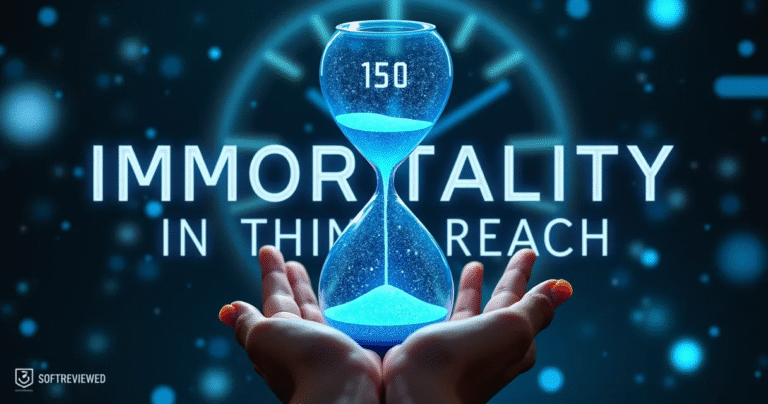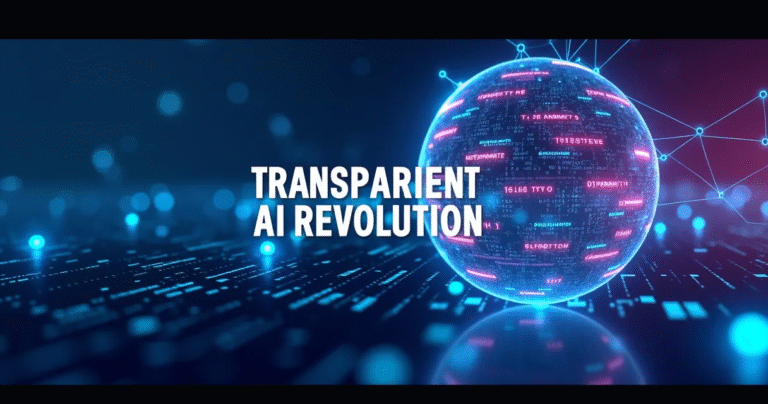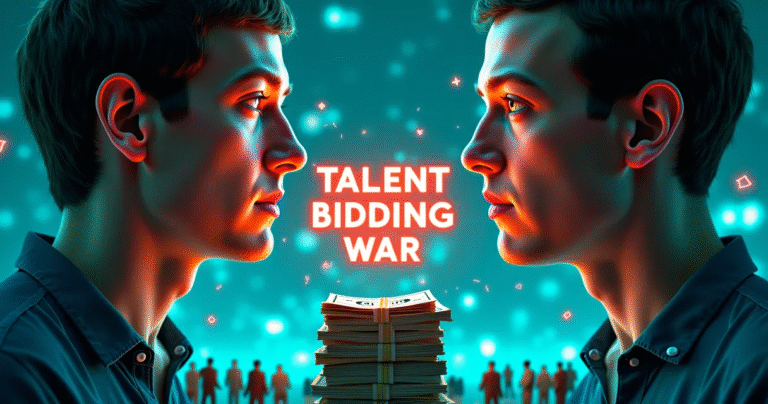The Future of Human Longevity & AI
Breakthrough technologies that could fundamentally transform human lifespan and society within the next decade
AI-Driven Biology Breakthroughs
AI could compress 100 years of biological progress into just 5–10 years, dramatically accelerating solutions for aging, disease treatment, and genetic engineering. Machine learning models are already revolutionizing drug discovery and biomedicine at unprecedented speeds.
Lifespan Doubling
Experts predict human lifespan could potentially double within the next 5 years through revolutionary medical advancements. Breakthroughs in regenerative medicine, genetic therapies, and cellular reprogramming are making this once science fiction scenario increasingly plausible.
AGI Arrival
Artificial General Intelligence (AGI) is expected to emerge by 2026–2027, capable of surpassing humans in nearly all cognitive tasks. This superintelligent AI will likely solve previously intractable problems in medicine, aging research, and biological understanding at unprecedented speed.
Longevity Escape Velocity
Medical innovations could soon add more than 1 year to life expectancy annually, enabling “longevity escape velocity” – where life expectancy increases faster than time passes. This phenomenon could theoretically lead to biological immortality for those who survive until these technologies mature.
Ethical-Societal Challenges
These advancements bring profound ethical questions: risks of overpopulation, wealth-driven access disparities, and complicated debates around digital consciousness and identity. Society must develop frameworks to address these challenges while maximizing benefits from longevity technologies.
AI vs. Aging: The Race to Extend Human Lifespans
Imagine a future where you could live to 150 years, enjoying a vibrant, healthy life well into what we currently consider old age. It's a bold vision, one recently brought into the spotlight by Dario Amodei, CEO of Anthropic, who suggested that artificial intelligence (AI) could potentially dramatically extend human lifespans within the next 5 to 10 years. This prediction, made at the 2025 World Economic Forum in Davos, has sparked both excitement and skepticism. But how realistic is this claim? This article explores the potential of AI-driven longevity, examines the current state of research, and delves into the ethical considerations surrounding such a monumental shift in human existence. We'll explore how AI is accelerating biological research, the challenges that stand in the way, and what this all could mean for the future of humanity.
Decoding Dario Amodei's Vision: AI as a Biological Research Catalyst

From Silicon Valley to the Science of Aging
Dario Amodei isn't your typical Silicon Valley CEO. With a background in biophysics from Princeton and Stanford, he brings a unique perspective to the intersection of AI and biology. As the head of Anthropic, an AI safety and research company, Amodei is deeply invested in ensuring that AI development benefits humanity. This focus extends to exploring AI's potential to address some of the world's most pressing challenges, including aging and disease.
The 'Grand Vision': AI's Role in Biological Breakthroughs
Amodei's prediction centers around the idea that AI can dramatically accelerate the pace of biological research. He envisions AI shrinking a century's worth of work in biology to just 5 to 10 years. 🤔 If this is indeed true, what previously seemed like science fiction might become a tangible reality. Amodei's rationale is that if AI can significantly speed up research, then extending the average human lifespan significantly isn't as far-fetched as it seems.
The AI-Longevity Connection: How Machines Are Rewriting the Rules of Aging
AI as a Super-Researcher: Speeding Up Discovery
Traditional biological research is a slow and painstaking process. AI, however, can analyze vast datasets, identify patterns, and generate hypotheses much faster than humans. This allows researchers to explore a wider range of possibilities and accelerate the discovery of new treatments and interventions. AI algorithms can sift through millions of compounds to predict their efficacy and streamline clinical trials. 💡
Targeting the Root Causes: AI's Precision Medicine Approach
Aging isn't simply about wrinkles and gray hair. It's a complex process involving the gradual degradation of cells, organs, and systems. AI can help us understand this process at a molecular level, identifying key biomarkers of aging and developing personalized interventions to slow it down. This is the promise of precision medicine, where treatments are tailored to an individual's unique genetic makeup, lifestyle, and environmental factors.
Real-World Impact: Examples of AI at Work in Longevity Research
AI is already making waves in longevity research. For example:
📌 Biomarker Discovery: AI is being used to identify new biomarkers of aging, allowing scientists to understand aging at the cellular level.
📌 Drug Development: Machine learning algorithms can screen and identify compounds that may have life-extending properties.
📌 Personalized Aging Interventions: AI can help develop tailored strategies to address individual aging patterns based on genetic, lifestyle, and environmental factors.
Companies like Retro Biosciences are using AI to re-engineer Yamanaka factors, which hold the potential to slow aging and regenerate organs. NVIDIA and Google DeepMind have also partnered to train biological Large Language Models (LLMs) on protein folding and drug discovery.
Is Immortality on the Horizon? Examining the Feasibility of Doubling Lifespans
The Current State of Longevity Research: Where Are We Now?
While AI offers immense potential, it's important to be realistic about the current state of longevity research. The average human lifespan has been increasing, but the pace of increase has slowed in recent years. ⛔️
- It took more than a century to increase the average lifespan of Americans by about 32 years.
- The annual growth rate has decreased from approximately 0.3% 50 years ago to approximately 0.05% in recent years.
Despite these advancements, no human has ever lived past 122 years, with some scientists suggesting that 150 years may be the absolute upper limit.
Roadblocks and Bottlenecks: Challenges to Overcome
Several challenges stand in the way of significantly extending human lifespans:
✅ Biological Limitations: Even if AI can optimize every stage of research, biological limitations may remain an insurmountable wall.
✅ Regulatory Hurdles: Clinical trials and regulatory approvals can be lengthy and complex processes, slowing down the practical application of AI-driven discoveries.
✅ Institutional Barriers: Physical and institutional barriers can also hinder the progress of AI in healthcare.
Expert Perspectives: Skepticism vs. Optimism in the Longevity Field
While Amodei's prediction has generated excitement, it has also been met with skepticism from some experts. 🧐 Stuart Jay Olshansky of the University of Illinois reminds us that no human has ever lived past 122, and 150 may be the upper limit. He questions whether we can "repair a car while it is traveling at 200 km/h?"
On the other hand, some researchers are more optimistic. Eric Topol of Scripps Research believes that "AI is our microscope for the 21st century—it's revealing biology's deepest secrets."
Is OpenAI’s Free Research Related to Anthropic’s Predictions on AI and Immortality?
The interplay between AI advancements and existential predictions raises intriguing discussions. Anthropic’s predictions about AI and immortality highlight ethical concerns and future implications. Openai’s deep research available to everyone offers a wealth of insights, fostering a broader understanding of AI’s potential impact on humanity and the philosophical dilemmas it presents.
The Ethical Quandaries of Extended Life: Navigating the Uncharted Waters
Unequal Access: Will Longevity Be a Privilege?
One of the biggest ethical concerns surrounding life extension is the potential for unequal access. If AI-driven longevity treatments become available, they are likely to be expensive, potentially exacerbating existing health inequalities. 🏥 Will longevity become a privilege reserved for the wealthy, or will it be accessible to everyone?
Societal Shifts: How Longer Lifespans Could Reshape Our World
Doubling human lifespans could have profound societal implications. Consider these potential scenarios:
- Overpopulation: A significant increase in lifespan could lead to overpopulation, straining resources and exacerbating environmental problems. However, birth rates tend to drop as people live longer.
- Social Security and Medicare: Extended lifespans could create challenges for social security and Medicare systems.
- Workforce Dynamics: Having more healthy older people could lead to increases in unemployment among the young.
- Marriage and Family: A doubling of the average lifespan could change how people view marriage and family relationships.
The Meaning of Life: Does Immortality Diminish Our Purpose?
Some philosophers and theologians argue that the certainty of death gives life meaning. 😔 If we were to live indefinitely, would we still feel the same urgency to make each day count? Would our values and priorities change?
From Promise to Practicality: Turning AI Longevity Dreams into Reality
Overcoming the Hurdles: A Realistic Path Forward
While dramatically extending human lifespans in the next 5 to 10 years may be overly optimistic, AI undoubtedly has the potential to significantly improve human health and extend lifespan. The key is to focus on addressing the challenges and ethical considerations outlined above. ➡️
The Long Game: A Sustainable and Equitable Approach to Longevity
A sustainable and equitable approach to longevity requires:
✅ Investing in AI safety research to mitigate potential risks.
✅ Developing AI models for biological research that are reliable, interpretable, and steerable.
✅ Ensuring equitable access to AI-driven longevity treatments.
✅ Addressing the societal and ethical implications of extended lifespans.
The Future of Aging: AI's Potential to Reshape the Human Experience
AI is poised to revolutionize healthcare and potentially extend human life expectancy. By enabling more personalized, proactive, and precise healthcare, AI can potentially add years to our lives and improve the quality of those additional years. However, realizing this potential will require careful navigation of technical, ethical, and societal challenges. The future of aging is not about immortality, but about extending healthspan and improving the human experience. To delve deeper into Anthropic's AI safety work, you can visit their Anthropic AI safety research page.







